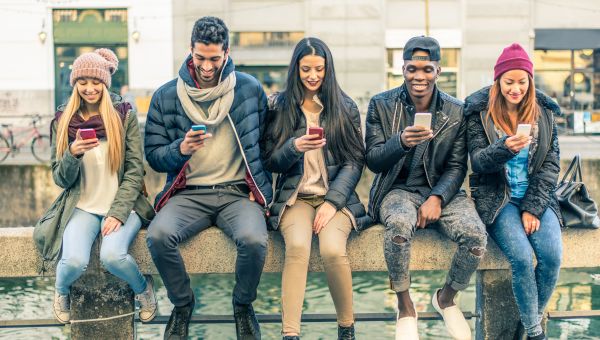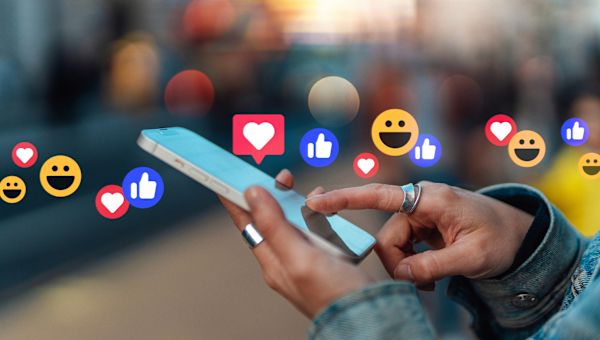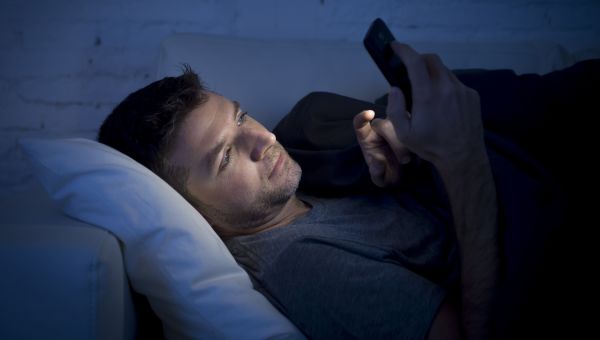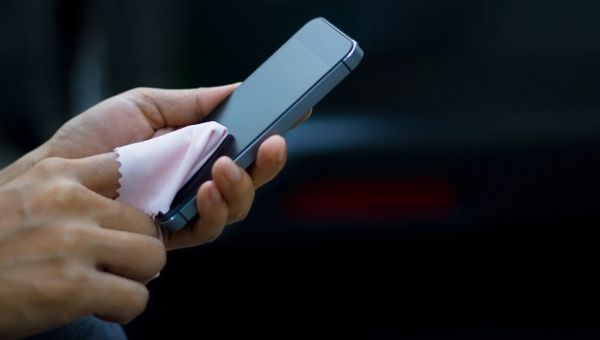Stop these 7 unhealthy smartphone habits now
Save your immune system, your mental health—and maybe even your life.
Updated on November 8, 2024

Your smartphone: It's the best of devices, it's the worst of devices.
On one hand, that incredible little machine allows you to access the sum total of human knowledge in an instant. On the other hand, it might hurt your neck, disrupt your sleep, or even give you a raging case of cheek acne.
What are the health consequences of using your iPhones and Androids incorrectly? And how in the world can you prevent them? Read on for a list of unhealthy habits, plus smart tips on how to correct them.

Constantly checking your phone
Between texts, alerts, and notifications, you're probably tempted to look at your phone about every five seconds. Problem is, checking too much can chip away at your overall ability to concentrate.
In a Canada-based study, Microsoft discovered that human attention spans have slipped, from 12 seconds in 2000 to just 8 seconds in 2013. Researchers attribute some of the drop to cell phone use, especially among younger adults. Increased digital consumption, including heavy web browsing and social media use, were particular factors in "eroding" long-term focus.
If you have a problem, turn off your notifications and try not to text after a certain hour. Your brain will thank you.

Obsessing over social media
Whether your bummed about your pal's perfect Instagram life, or feeling guilty that you blew two hours on TikTok, social media can affect your mood. And the more you use it, the worse it may be.
One 2016 study found that young adults spending the most time on social media are likelier to be depressed than those who spend the least. The American Academy of Pediatrics discovered a similar excess-use effect for kids. They even gave it a name: "Facebook depression."
The solution? Either delete your accounts entirely or download an app that restricts your overall social media usage. They don't cost much and they could help your mental health.

Scrolling before bed
If you're feeling unrested lately, your smartphone could be the culprit. Research has found that using a phone within an hour of bedtime may disrupt sleep, making it difficult to drop off and stay snoozing. This is due, in part, to two things:
- The blue light wavelenghts coming out of the device, which suppress the brain chemical melatonin and keeps you alert.
- Smartphone interactivity, which is more likely to keep you awake than doing something passive, like watching TV.
Instead of checking texts, set your device aside and read a book. A good novel will probably lull you to sleep faster than your iPhone. And in the process, you just might learn something.

Not cleaning the screen
Searching for a good place to grow bacteria? Look no further than your smartphone. One small study found smartphones are dirtier than toilet seats. When you combine those germs with the oil and sweat generated by placing a device against your face, the predictable result is acne. Smartphone users often report breakouts on one cheek.
To prevent this, try two things: First, clean your screen using a soft, lint-free cloth. If you must use a liquid solution, don't spray it directly on the device. Second, get your phone away from your face. Earbuds with a microphone are inexpensive and available pretty much anywhere.

Hunching over to type
If your parents ever told you to sit up straight at the dinner table, you might want to thank them. Sure, it's polite, but it also taught you good posture. This is key to keeping your back, neck, and shoulders healthy and pain-free.
Those muscles have been under attack lately, thanks largely to smartphones. Orthopedic specialists are reporting more and more patients with "text neck," another name for the strain caused by hunching over a device. Especially alarming? Many of those experiencing this malady are kids.
Happily, the solution is simple: Instead of hunching over to read your texts, keep your head upright and bring your phone to your eyes. That should help ease pain and keep you safer long-term.

Shutting out your surroundings
There were an estimated 29,140 distracted walking injuries between the years 2011 and 2019, many of them due to phones, according to a 2021 study published in Design, Architecture & Ergonomics that drew on data from the National Electronic Injury Surveillance System database. The most injuries were reported in young people ages 11 to 20 years old, followed by those ages 21 to 30 and those ages 31 to 40.
Devices can split our concentration and lower our awareness of our surroundings, damaging everything from our walking and driving skills to our ability to hold conversations. So, when you're doing something requiring undivided attention, put your phone away. To avoid temptation, stash it in a hard-to-reach place before you even begin.

Staring at your phone for hours
Your smartphone obsession might not blind you, but it isn't good for your vision. According to the American Academy of Opthalmology, extended screen time prevents us from blinking as much as we should, leading to dryness, eye strain, blurred vision, and fatigue.
Children, whose eyes are still developing, are also at risk for dry-eye disease. In one Korean study, kids who used their smartphone longer and more often than their peers were more likely to show symptoms. When they stopped using smartphones for four weeks, the symptoms went away.
To prevent strain, use the 20-20-20 rule: Take breaks every 20 minutes or so of 20 seconds at a time to look at objects 20 feet away or farther. And opt for wearing glasses over contact lenses, which can aggravate irritation.

Haolan, Z., Campbell, I. M., & Giang*, W. C. W. (2021). Phone-Related Distracted Walking Injuries as a Function of Age and Walking Environment. Proceedings of the Human Factors and Ergonomics Society Annual Meeting, 65(1), 611-615.
National Safety Council. Take Steps to Avoid Injury While Walking. Accessed November 7, 2024.
More On


video

article

slideshow


video


video
